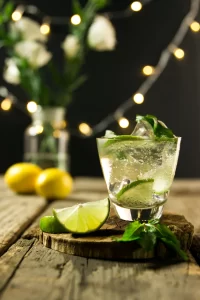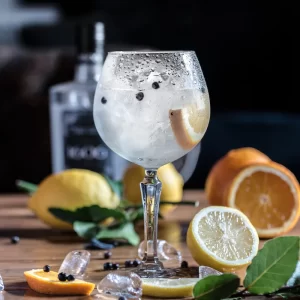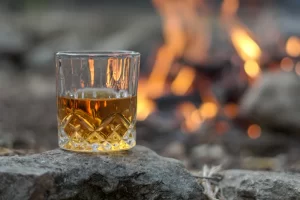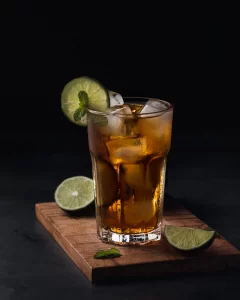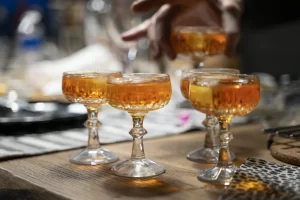How to Become a Liquor Connoisseur
So, you fancy yourself a spirits and liquor aficionado of sorts. You know your brands and can appreciate a smooth taste and iconic aromas. And even some of your friends call you the “connoisseur” of your group.
But there’s more to being a liquor connoisseur than just knowing your stuff and appreciating a bold flavor. There are credentials to consider and official titles for those experts who specialize in specific spirits and liquors. Here’s what might distinguish you from being a well-versed liquor fan and a tried-and-true liquor connoisseur.
Understanding the Titles and Endorsements
The official definition of a connoisseur dates back to the pre-1830s, where in France, “connaisseur” or “connoistre” meant simply, to be acquainted with or have a great deal of knowledge about a particular subject. Originally, connoisseurs were found in the cooking profession, the fine arts, along with wines and spirits.
Today, connoisseur is still part of the beverage industry’s vocabulary. But true experts in various liquor or spirit niches might be called more than just a connoisseur. Here’s a breakdown of today’s most popular titles that essentially mean you’re an expert in appreciating, tasting, or evaluating specific spirits or liqueurs.
Connoisseur
Anyone can claim to be a connoisseur, really. So, if you’re super-versed in all the brands, hues, tastes, and history, it’s acceptable to title yourself as a connoisseur. But unless you’re certified, your self-proclaimed credentials won’t take you very far in official alcohol expert circles.
If you’re certified, meaning you’ve achieved some level of indoctrination for the craft, you’ll earn the title of “certified sommelier.” To achieve this status, you’ll have to combine extensive tasting experience with training and a more formal education in the world of spirits and alcohol.
As an example of the connoisseur and sommelier distinctions, consider wine expertise. For example, a wine connoisseur knows a lot about wine, wine varieties, and methods. Alternatively, a wine sommelier is a certified and trained professional who enjoys a career in the hospitality or service industries, responsible for ordering, selecting, and serving wines.
With certification and endorsement as a sommelier, you can expect to earn a great living. Level 1 sommeliers make anywhere from $40,000 to $50,000. Level 2 sommeliers can earn up to $70,000. And as an Advanced Sommelier with Level 3 distinctions can pull an $80,000 annual salary with ease.
Sommelier
If you want to become a Certified, Advanced, or Master Sommelier, you’ll have to sign up for training. And probably the most famous accreditation of all is the tri-tiered international accolade awarded by the Court of Master Sommeliers. The very first successful exam took place back in 1969 in the UK. Since then, the organization has grown to include a host of courses and is today considered to be the “premier international examining body,” especially among students of wine. There is in-person and online instruction. And these courses cover everything, including winemaking, regional distinctions of wine, tasting methods, service standards, and more.
Wine Expert
In the UK, the Institute of Masters of Wine, or IMW, directs this program for serious wine connoisseurs. Here you’ll find all the resources to help advance through the IMW’s coursework. But there are also networking opportunities for those looking for work opportunities with wine specialties. Only the truest enthusiasts will be considered, with a minimum of three years in the wine industry. Candidates must also present with a “glowing recommendation” of others within the industry.
You don’t have to go to the UK to become a wine expert sommelier, though. In fact, you can find a wine school near you and look for credentialled, Level 3 sommelier courses. You’ll have to enroll in coursework and pass the L3 sommelier exam. But once you pass, you’ll gain certification.
If you want to work in a restaurant and have wine connoisseur privileges, you can essentially do so without schooling or certification. If you’re looking to become an aficionado without the certs, consider:
- Reading as many books about wine and spirits as possible.
- Enroll in classes as you can when available.
- Commit to tasting at least ten different wines every week.
- Work in a wine service capacity at a winery or fine dining restaurant.
Whiskey Master
Connoisseurs aren’t just wine experts. You can also explore becoming a connoisseur in the world of whiskey. Except instead of sommeliers, whiskey gurus are often referred to as Whiskey Masters, Certified Whiskey Specialists, or Masters of Whiskey. The Council of Whiskey Masters (CWM) is headquartered out of Los Angeles and offers all the whiskey certifications you need to become an official connoisseur. Courses are divided into four levels, and students follow the program under the supervision of the advisory board.
Start with the Level 1 training to become a Certified Scotch Professional or Certified Bourbon Professional. Level 2 is where you achieve the esteemed Certified Whiskey Specialist title. Level 3 classes will elevate your status to Master of Scotch certification, and Level 4 courses will ultimately result in the prestigious Master of Whiskey title.
Throughout the educational process, and through all four levels, candidates will learn everything about spirit production, origins, and history. They’ll absorb the knowledge of tasting methods and regional elements that contribute to the various tastes. Aging processes, traditions, and finishing methods are also reviewed. Once you’ve run through the gambit of training, there’s nothing about Scotch, Bourbon, or Whiskey you won’t know.
Bourbon Steward
If your jam is bourbon, you’ll want to explore the official bourbon education course offered by the Kentucky Distillers Association in Louisville. Headed up by the Stave & Thief Society, this program is separated into two paths, a self-guided, Certified Bourbon Steward designation, and the more hands-on Executive Bourbon Steward title.
The self-guided courses start at $75, while the executive-level courses start at $500. Students in either curriculum learn about bourbon production, regional heritage, tasting methods, and various brand distinctions.
Tequila Master
Did you know you could also become a tequila connoisseur? The International Tequila Academy leads an agave learning experience that results in tequila-specific accreditations. There are three levels of certification, including:
- Entry-Level Certification – Cost $99
- Conocedor de Tequila – Cost $249
- Tequila Sommelier – Cost $399
Students enrolled in any of these courses will receive a proper introduction to all things tequila, including the industry as a whole and the some 1000+ brands that make up the agave spirits market. The more advanced courses will take you on the journey of understanding chemical makeups, production, marketing, and tasting methods.
Gin Expert
Do you love your gin? Consider getting your Gin Diploma from the Edinburgh Whisky Academy responsible for infusing the UK with its favorite spirit. This self-paced course only costs $79 and includes six online interactive modules designed to cover a comprehensive library of gin-related education. Learn about botanical distinctions, spirit history, tasting procedures, and other gin tidbits. And once you complete the course, you’ll receive your very own official certificate as a gin connoisseur.
Certified Cider Professional
Maybe you consider yourself to be more of a cider connoisseur. Well, you can find your certification, too! The American Cider Association offers a cider-specific certificate program. In an effort to advance the industry’s impact on the world, this series of classes is ideal for hospitality pros, culinary experts, and everyday gurus. Enjoy this self-guided Certified Cider Professional journey and learn all about the history, production, classification, storage, and service methods for all your favorite fruity gems. There are six modules to get certified, along with a 60-question exam that costs $75.
Cognac Educator
The North American Sommelier Association, also called NASA, offers a day-long course for cognac enthusiasts. Hosted and led by official Cognac Educator Master Taster Irina Ponomarenko, this hands-on effort introduces all the details of cognac’s rich history and production methods. The course also covers food pairing techniques, aging procedures, tasting methods, and regional distinctions. Upon completion, candidates get a Certificate of Attendance endorsed by NASA in conjunction with the Bureau National Interprofessionelle du Cognac (BNIC.)
Other Institutions and Certifications
In addition to the various certifications listed above, there are even other opportunities to make your spirit and alcohol knowledge more official. And if you’re thinking like a connoisseur, there are even more ways to gain experience.
Certified Spirits Educator & Certified Specialist of Spirits
The Certified Spirits Specialists program is also available for bar professionals and casual connoisseurs. Both of these programs follow the same course methodology that the wine training does. Follow the online instructions and consider the various membership opportunities. And students can also elect to get books and workbooks for more of a hybrid learning experience in conjunction with the online instruction. Study materials range from $20 to $40, and the exam costs $850.
Beer Certifications to Explore
For some of you, while you enjoy various spirits and sipping liquors, what you really believe you are is a beer connoisseur. And yes, there is an official certification for you. For those who appreciate beers and brews beyond the casual guru, you can take the coursework necessary to become:
- Certified Beer Server
- Certified Cicerone
- Advanced Certified Cicerone
- Master Cicerone
Don’t presume these are easy to achieve, either. There are fewer than 20 individuals in the whole world who hold the highest-ranking title of Master Cicerone. Much like the other liquor and spirit certifications, these courses cover everything about beer, including brewing processes, traditions, tasting methods, history, handling requirements, and more.
Avoid Making These Mistakes Most Actual Connoisseurs Frown Upon
So, now that you know how to take your spirit and liquor expertise to the next level, will you become more than just an armchair connoisseur? Start exploring your options. And remember to avoid making these core mistakes that will signify to the world that you aren’t quite the expert you claim to be.
- Whiskey and scotch are not the same. Don’t refer to them interchangeably.
- Connoisseurs don’t “shoot” shots; they sip.
- Vodka is best left for the cocktails.
- Dry ice isn’t going to enhance any drink.
- Don’t forget to swirl and smell your wine before your first sip.
- You won’t find any connoisseur putting Coke in their whiskey.
- You finish what you start – every time.
- True connoisseurs don’t drink to get drunk; they drink to awaken their senses.
- Don’t keep your whiskey in the fridge.
- Wait to drink until everyone’s completed the “cheers” or “skol” celebration.
Get out there and start sampling and educating yourself on some of your favorite spirits and liquors. From wines to beer and every distilled gem in between, there’s a process for elevating your knowledge and experience. And as you seek out additional learning, start visiting some of the nation’s greatest distillery tours. Let Distillery Nearby be your guide to all the best sampling! With the broader horizons of all the incredible spirits and liquors out there just waiting to be sipped, you’ll be well on your way to becoming a connoisseur. And let’s be honest, enjoying fine spirits is all about the journey and not the destination. But it would be pretty cool to earn a certificate that marks your journey as extra special.

